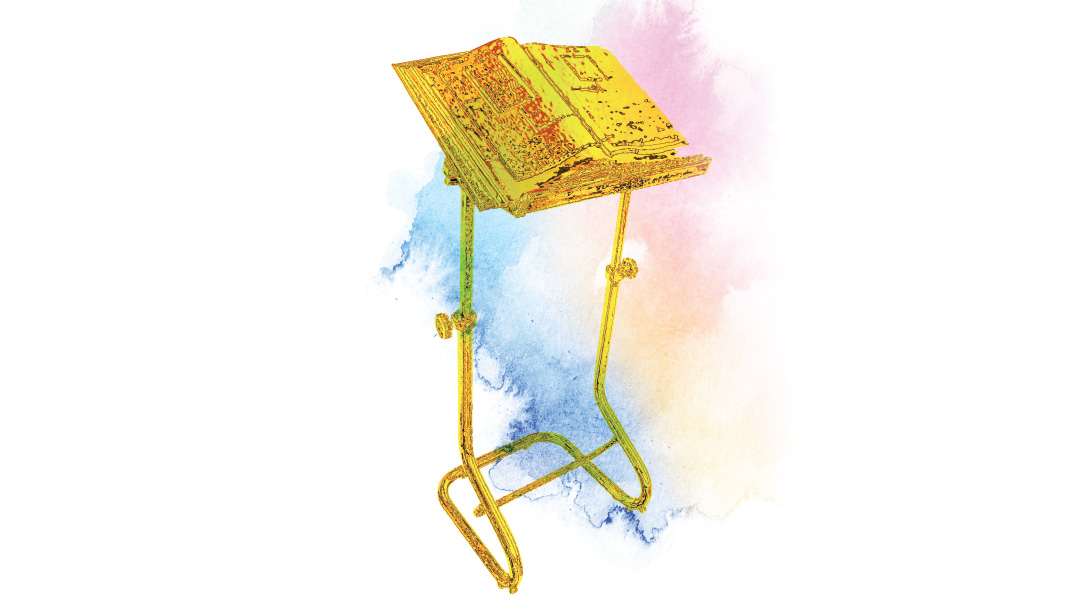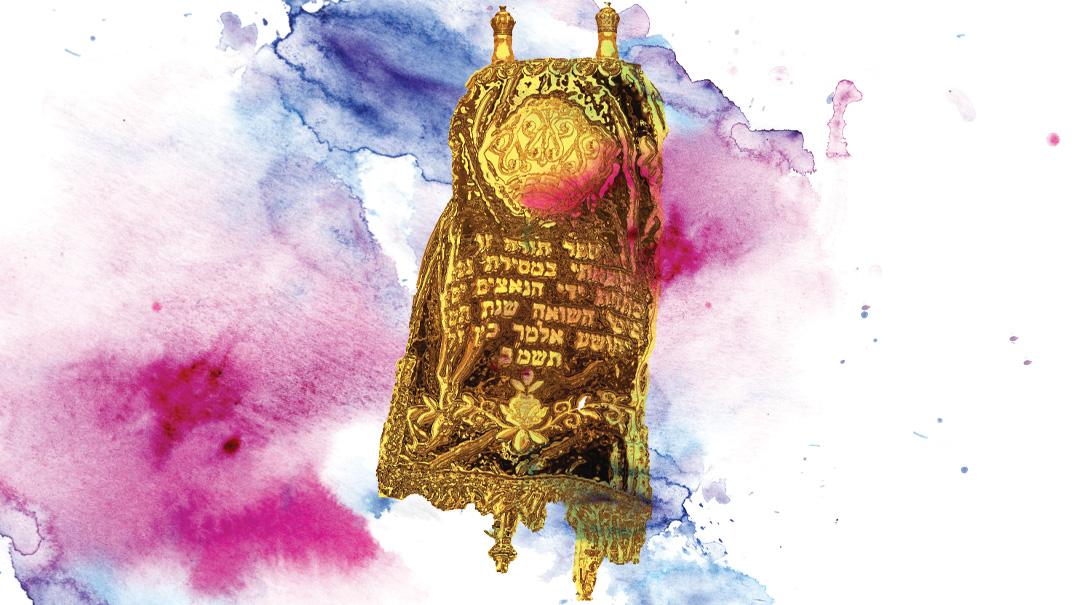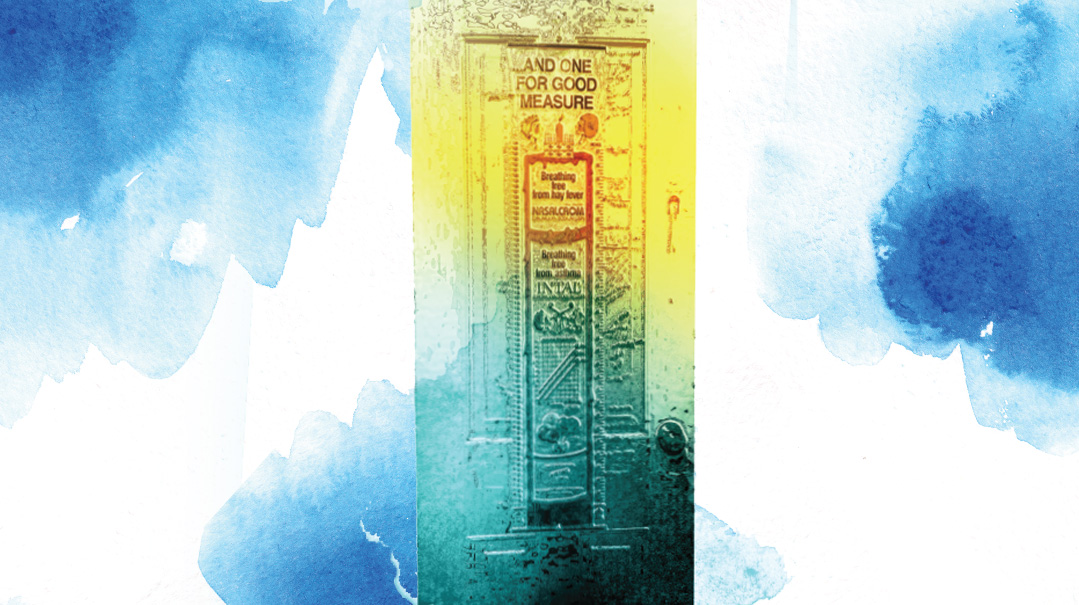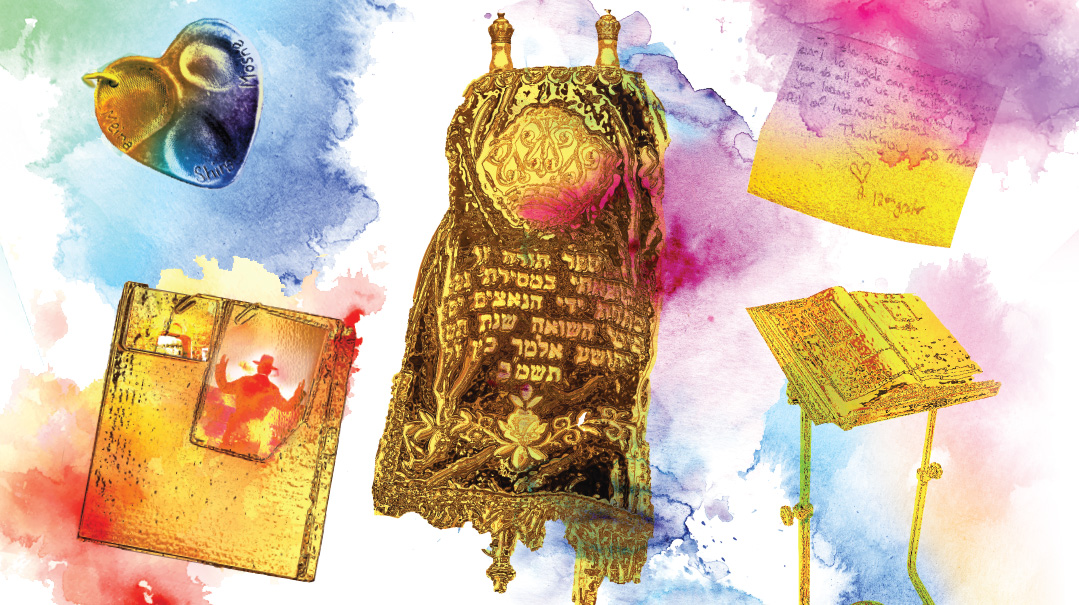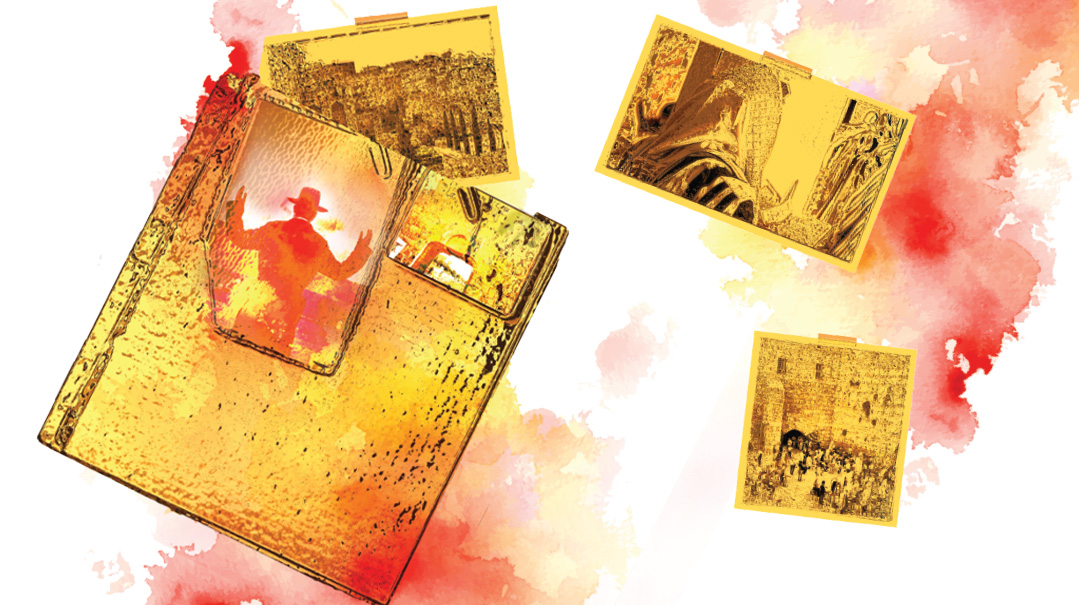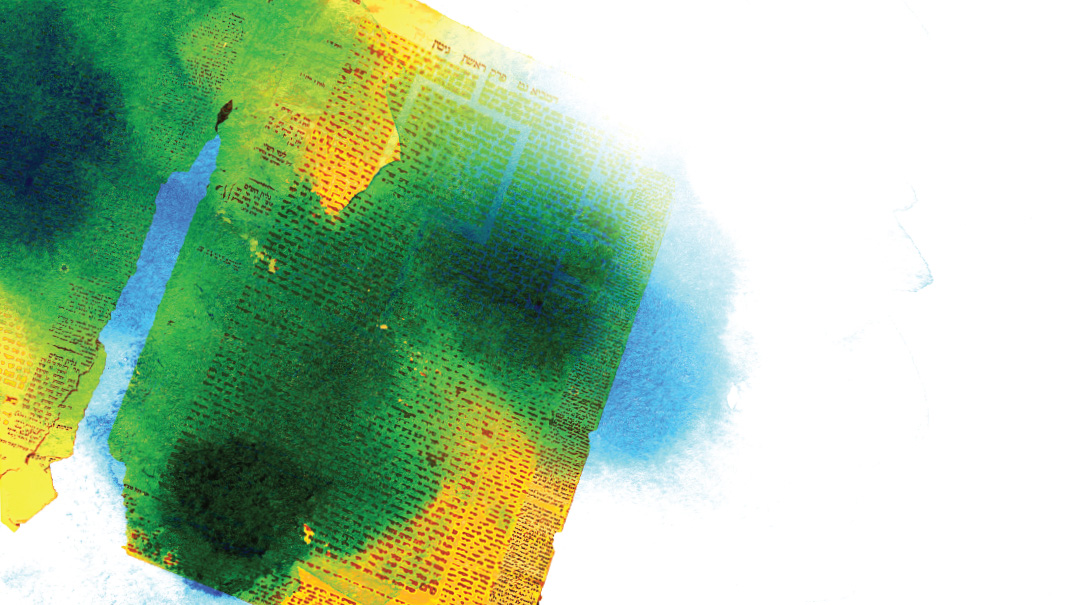Fingerprints
| September 20, 2022While Doni was alive, he touched so many people. The stories he left behind are like fingerprints on our lives
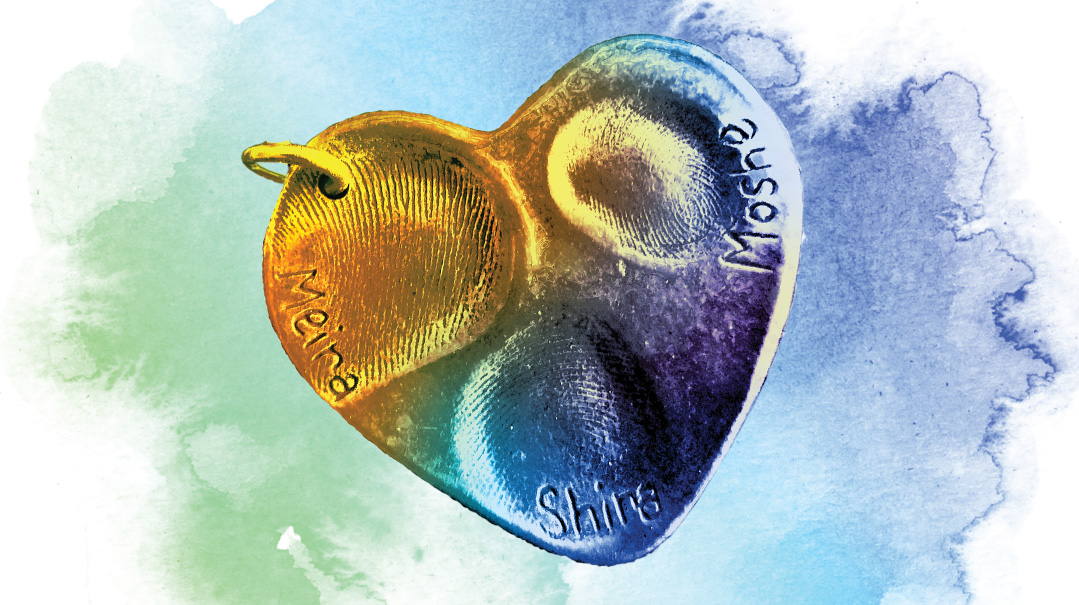
MYson Doni (Daniel Moshe) died when he was 19. Whenever I told him, “I love you!” he’d say, “Love you more!” He had lots of happy times, but he suffered from mental illness for years. From doctor to doctor, tefillah to tefillah, med to med, the journey was long and lonely. We tried everything we knew about, but it finally cost him his life.
While Doni was alive, he touched so many people. The stories he left behind are like fingerprints on our lives.
Three years later, on June 1, 2016, my daughter Sahra gave birth to a beautiful baby boy. He was named Moshe Nechemia. Maybe this little baby had a piece of Doni’s soul tucked inside him. He definitely had a lot of hopes, dreams, and tefillos accompanying his birth.
Just a few weeks after he was born, Moshe had tiny little shudders. Since it was different from anything she’d seen with her other babies, Sahra checked with a friend who was also a nurse, and felt reassured when her friend said, “That’s what babies do, it’s fine.”
But it wasn’t.
The shudders became stronger and more frequent and Sahra grew more concerned. Finally, she and her husband took baby Moshe to the emergency room where he managed to shudder in front of a doctor. Seizures, not shudders. They just look different in a six-week-old.
We were all worried, but the doctors were confident that after a few days in the hospital they would know more and successfully resolve the seizures with one of the many medications available. It was Sunday. “You’ll be home before Shabbos,” they reassured her.
But she wasn’t.
One week turned into two. I flew from Denver to Detroit to be with the family. Two weeks turned into six. From doctor to doctor, tefillah to tefillah, med to med, this journey was not lonely. The community was amazing: Tehillim, meals, babysitting for the older sisters, even lunches for the people staying in the hospital with the baby. Klal Yisrael shines during times like these, and the Detroit community really stepped forward.
There were lots of tests, and more tefillos. The meds failed one after another. They tried diet changes for the three-month-old baby, which meant no more nursing. There were brachos from gedolim and consultations with specialists across the country. Eventually the doctors identified Moshe’s condition as a very rare, spontaneous-start, drug-resistant seizure disorder: Malignant Migrating Partial Seizures of Infancy.
When the children left the room, I asked the doctor what that meant. “Not good,” he replied, with fire and a tear in his eye.
The doctors wrung their hands and sent the palliative care team to consult with the parents. “Palliative” was a new word. It means care that relieves pain (in this case from unremittent seizures) without dealing with the cause of the condition. It was a lot to swallow. How could they stop working on the cause and just try to treat the pain? But they had no more tools.
Soon phone calls came in from around the country with tips from friends about a few experimental efforts, last-ditch attempts that might provide a thread of hope. But the doctors were clear about their expectations, and they did not extend past six months. Since Moshe could no longer see or recognize anyone, they offered to care for him in the hospital until the end so that the family’s life could get back to “normal.”
But Sahra’s normal included Moshe, no matter how he was faring. There was no way he would stay behind without his loving mother. So, home hospice care was set up, and a nurse and a social worker came every week to check in.
Meanwhile, Moshe’s older sisters, Meira, five, and Shira, three, doted on him. He was a cute sleeping baby that they loved to cuddle. Finally, he was home, and they didn’t have to hug and leave like they did in the hospital.
I went back to Denver and Sahra took excellent care of Moshe: feeding tubes, medicines, hugs and love. Soon his six-month birthday passed. So did his seventh and eighth. Each month was an extra victory, and he got a birthday party with pictures each time. But all of the pictures are with his eyes closed; the medicine took away his pain, but also kept him very sleepy. The only milestone was another calendar page. Still, celebrations seemed important when each one might be the last.
In those moments I was glad that I lost a son first, if only so that I could understand some of the pain my daughter was experiencing and so that I could be there for her in a real way, without the platitudes so many others offered her. No one wants to be that “special.”
By ten months it was clear that the end was closer. It was time to make sure the sisters knew that Moshe was not going to be here much longer. But how do you explain that to a five- and three-year-old?
There are no stories written for young siblings to help them understand having a baby in hospice care. The social worker brought a book written for children about the idea of death: something about leaves being green, then drying up, and blowing away. But it wasn’t about a dying baby.
So Sahra made up her own stories to prepare them. “Once upon a time, there were two little girls and they had a brand-new baby brother. The brother was so cute that they wanted to hold him all the time. Their mommy showed them how to hold him safely and they were very careful older sisters. One day, the baby got very sick and he needed to go to the hospital. The doctors checked him carefully and they realized that he was very, very, very, very, very sick. His parents davened so much and they gave him all the medicines the doctors thought might work. People in the community davened too. Hashem loved all the tefillos and cared very much about the baby and about his family. But Hashem knew that the baby was not going to stay for long. So, the family took very good care of the baby, and they all knew that soon, their special baby would go back to Hashem.”
The sisters were so little that the story made sense to them, but still, they wished they could have their baby forever.
One day the social worker told us about a jeweler who makes special fingerprint jewelry for families who are losing a loved one. Moshe was slipping away, and it felt comforting to think about having a tiny reminder of the impression he made on our lives.
The jeweler came to Sahra’s home and showed the girls what they could choose. We each wanted a little pendant with just Moshe’s fingerprint as a keepsake.
Thinking back, I sort of wished I had something of Doni’s that I could wear with a real impression of him. But thinking forward, I realized it would be too sad to wear. What if someone asked me about it? Did I really want to tell the story? I asked the jeweler to make a heart-shaped pendant with the fingerprints and names of all three children. That way, it would look like an ordinary “bubby necklace,” but I’d know the secret.
The jeweler pressed each little finger into a mold and took it home to cast them in silver. And then I called her to add an extra secret: On the back, I wanted the words “I love you more,” so that Doni would be there too.
Moshe began to drift slowly away. I came to stay with Sahra until the end. Each week the nurse came and each week she was surprised to come again. He outlived all possible estimates. Finally, his first birthday arrived. It was the second day of Shavuos. This time the only celebration was a smile. It was Yom Tov, and it couldn’t be much longer.
As we sat on the porch toward the end of the day, a neighbor stopped by to say happy birthday to Moshe. We brought her inside to say it in person. Moshe looked so peaceful. She wondered aloud how we would know he died if he slept so peacefully. We pulled back the blanket to show her his breaths, but they were hard to see. As the blood drained from our faces, we handed her the stethoscope that was kept in the corner of his crib. Hesitating, but then summoning her courage, she checked his heartbeat.
She turned to us and shook her head gently. “I don’t hear anything.”
We covered his little face with the blanket and I took the neighbor outside to give Moshe’s parents some time alone.
Since it was Yom Tov, the candle they lit at the head of his little bed was from the last flame still burning in the house: the ner neshamah I had lit for Doni the night before. Perhaps there was a tiny piece of Doni’s neshamah tucked inside after all.
As I sat on the porch watching the sun set, I realized that both boys died from brain abnormalities, just one had judgment around it and the other had compassion.
After the shivah it was time for me to go home. I was so hoping to see the jewelry before I left, but it still wasn’t ready. I stayed through one last Shabbos, and then on the morning of my flight, the jeweler called to say it was done. We left for the airport early so that we could pick it up on the way.
Each necklace was wrapped in a little box with a pretty card on top. I opened mine as Sahra drove and saw the three fingerprints shining in the heart. I blinked away a tear when I saw Doni’s words on the other side. It was both sad and comforting to have the pendant, but my tears were more about leaving my daughter alone with her pain than being reminded of mine.
I wore the pendant a lot that first year. It was part of my healing heart, for both boys, as well as for my daughter who lost both a sibling and a child. Though I haven’t worn it in years, I still love seeing the pendant in my jewelry box. It’s nice to pause and feel the love for each of them. And I am comforted when I think about Doni’s fingerprint in my life: “I love you more!”
Aliza Bulow is the founding director of Core, a nonprofit network that supports frum women who serve the Jewish community. She lives in Denver, Colorado.
(Originally featured in Mishpacha, Issue 929)
Oops! We could not locate your form.

